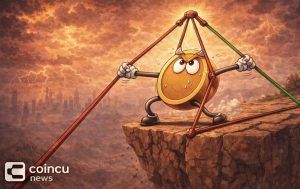A blockchain is a revolutionary technology that has transformed various industries and brought about significant changes in the way we conduct transactions and store information. But what exactly is a blockchain?
A blockchain can be defined as a distributed and decentralized digital ledger that records transactions across multiple computers. It is composed of a series of blocks, each containing a set of transactions. These blocks are then linked together using cryptographic hashes, creating a chain of information that is virtually impossible to alter or tamper with.
So how does a blockchain work? Let’s break it down:
What is decentralization?
One of the fundamental characteristics of a blockchain is its decentralized nature. Unlike traditional centralized systems where data is stored in a single location, a blockchain is distributed across a network of computers, also known as nodes. Each node has a copy of the entire blockchain, making it highly resilient to attacks and censorship.
Decentralization ensures that no single entity or organization has control over the blockchain. Instead, it is governed by a network of participants who validate and verify transactions through a consensus mechanism.
What is Cryptographic Security?
Another crucial aspect of blockchain technology is its cryptographic security. Each block in the chain contains a unique identifier called a hash, which is generated using complex mathematical algorithms. This hash not only serves as a digital fingerprint for the block but is also derived from the information contained in the previous block.
By linking each block with its predecessor, any attempt to tamper with a single block would require altering the entire chain. This makes the blockchain highly resistant to fraud and manipulation, ensuring the integrity and immutability of the recorded transactions.
What is Mining and Consensus?
In order to add a new block to the blockchain, participants must engage in a process known as mining. Mining involves solving complex mathematical puzzles using computational power. This process not only secures the network but also creates new blocks as a reward for miners.
Once a miner successfully solves the puzzle, they broadcast the new block to the network for validation. Other participants in the network then verify the validity of the block and the transactions it contains. This decentralized validation process is known as consensus, and it ensures that all participants agree on the state of the blockchain.
What are Public and Private Blockchains?
There are two main types of blockchains: public and private.
Public blockchains, such as Bitcoin and Ethereum, are open to anyone who wants to participate. They are transparent, allowing anyone to view the transactions recorded on the blockchain. This transparency provides a high level of trust and accountability, making public blockchains ideal for applications like digital currencies, supply chain management, and voting systems.
On the other hand, private blockchains are restricted to a specific group of participants. These blockchains are often used by businesses and organizations that require a more controlled and permissioned environment. Private blockchains offer increased privacy and scalability, making them suitable for applications such as enterprise solutions, interbank transactions, and healthcare records.
What are the real-world applications?
The potential applications of blockchain technology are vast and diverse. Here are some real-world examples:
What is Supply Chain Management?
Blockchain technology can revolutionize supply chain management by providing transparency and traceability. By recording every step of a product’s journey on a blockchain, companies can verify the authenticity and origin of goods, reduce fraud, and enhance consumer trust. This is particularly useful in industries such as food and pharmaceuticals, where safety and quality are paramount.
What are Financial Services?
The financial sector has been quick to embrace blockchain technology. With its ability to facilitate secure and efficient peer-to-peer transactions, blockchain has the potential to disrupt traditional banking systems. It can eliminate intermediaries, reduce costs, and increase the speed of cross-border transactions. Additionally, blockchain-based smart contracts enable the automation of complex financial agreements without the need for intermediaries.
What is healthcare?
Blockchain technology has the potential to transform the healthcare industry by improving the security and accessibility of patient records. By storing medical data on a blockchain, healthcare providers can ensure data integrity and patient privacy while enabling interoperability between different systems. This can lead to more efficient care coordination, reduced medical errors, and improved patient outcomes.
What is Identity Management?
Blockchain-based identity management systems can provide individuals with full control over their personal data while ensuring privacy and security. By storing identity information on a blockchain, users can securely share their data with trusted entities, such as government agencies or financial institutions, without the risk of data breaches or identity theft.
What is the future of Blockchain?
Blockchain technology is still in its early stages, and its full potential is yet to be realized. As the technology continues to evolve, we can expect to see advancements in scalability, interoperability, and privacy. The integration of blockchain with other emerging technologies, such as artificial intelligence and the Internet of Things, will open up new possibilities and use cases.
While there are challenges to overcome, such as scalability issues and regulatory frameworks, the adoption of blockchain technology is steadily increasing. Governments, enterprises, and individuals are recognizing its transformative potential, and investments in blockchain research and development are on the rise.
What is the conclusion?
In summary, a blockchain is a decentralized and immutable digital ledger that enables secure and transparent transactions. It offers enhanced security, transparency, and efficiency compared to traditional centralized systems. With its potential to disrupt various industries, blockchain technology is poised to reshape the way we exchange value and store information in the digital age.













